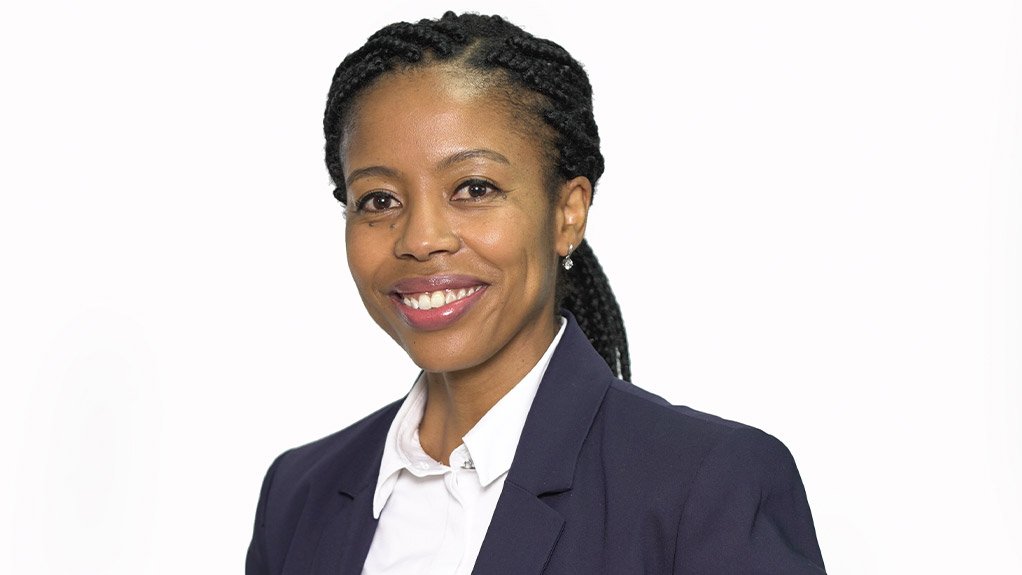Black-owned private equity investment firm Agile Capital focuses on investments that drive sustainable development and have a demonstrable track record of growth and investment returns, with Agile Capital principal Elizabeth Kolobe noting that, unlike its rivals, it does not have exit timing pressure and has around R850-million in committed capital available and ready to invest.
Kolobe indicates that there is growth potential in KwaZulu-Natal (KZN) and that Agile has noted various investment opportunities, given the port infrastructure and plans by State-owned Transnet National Ports Authority to redevelop the Point Precinct in the Durban port to expand its automotive terminal, thereby contributing towards access to export products and, subsequently, security of supply, while enabling economic growth.
She notes that funds will be made available to companies throughout South Africa that fit Agile’s investment criteria and owing to its diverse portfolio criteria, it only considers investments in smaller companies if they fit within an existing portfolio company.
Though there is potential for investments in KZN, Kolobe says Agile does not necessarily segment investments according to areas in which they operate, but looks out for suitable investments.
The firm currently has 15 companies in its portfolio, one of those being Hewitt and Associates (H+A), a global design and manufacturing company. H+A is a KZN- based company which became a subsidiary of Provantage, one of Agile’s portfolio companies in 2022.
Kolobe states that investing in its investee companies has yielded successful partnerships, with these companies looking for strategic partners to add value to their businesses, as well as improve their empowerment credentials, which is important in the South African context.
Not only has growth in its investee companies brought about the creation of new job opportunities for more people, opportunities for skills development through employee training, and the expansion in supply chain as suppliers increase their revenues – this also has a knock-on effect on the province’s gross domestic product, and that of the country.
Agile is interested in various sectors including the automotive and manufacturing industries and across the value chain, including suppliers to large original-equipment manufacturers (OEMs) in South Africa as part of a drive to localise production of parts.
“We see growth in the South African automotive sector. There has been significant investment by multinational OEMs in production in the country and various economic programmes are geared towards encouraging localisation and transformation.”
“Further, the majority of vehicles manufactured and/or assembled in South Africa are exported which bodes well for the industry. We are looking for investments in companies which supply the automotive sector.”
Kolobe adds that Agile Capital is also currently invested in adhesive supplier Henkel South Africa which supplies into the automotive OEMs.
The firm also has interests in the healthcare, property and service industries, with one investment in healthcare being medical device distributor the SA Biomedical Group. Although headquartered in Cape Town, with another office in Johannesburg, SA Biomedical is in the process of opening a depot in KZN.
“We have had good experiences in the services sectors. We find that these businesses are scalable and do not have significant capital expenditure requirements. Having customers in the right sectors allowed these businesses to weather the storm of the Covid-19 pandemic despite the challenges faced,” Kolobe says.
Agile Capital’s “deep commitment” to empowering others extends to investing in projects that make a direct social impact in communities, through its foundation.
“Previously, we were involved in the Henkel Shaping Futures initiative. This programme was suspended owing to the Covid-19 pandemic. Our most recent foundation initiatives have been supporting Pimville Primary school by providing school shoes and supporting an early childhood development centre in the Western Cape.”
However, being in the investment industry is not without its unique challenges, considering the country’s economic climate.
“It is clear that the Covid-19 pandemic has had a negative impact on many businesses. This resulted in subdued performance in some years and subsequent recovery, which makes it challenging to determine the sustainable level of profitability for these businesses. In some cases businesses have re-based and thus valuations must reflect the new sustainable level of business. This has posed a challenge in terms of valuing businesses, but as we move further away from severely impacted years, this does get easier,” Kolobe comments.
The company made a significant investment into the industrial cleaning and hazardous spill specialist SpillTech in 2014 owing to its attractive posture in the environmental remediation sector, its solid leadership, good prospects for growth and the necessity of its niche services. SpillTech acquired Durban based environmental impairment underwriter Envirosure in 2018. Envirosure provides insurance to customers transporting hazardous goods and potential pollutants, the storage of fuels, chemicals, and other potential contaminants. The insurance also covers costs incurred during clean-up and rehabilitation in the event of an environmental accident.
Séché South Africa, which also includes waste management company Interwaste, acquired SpillTech in 2021 from Agile and the other shareholders. Agile has subsequently reinvestec in Seche South Africa which consists of SpillTech, Interwaste and Envirosure.
SpillTech is based in KZN with 19 branches spread across the country providing a 24 hour service, ranging from hazardous waste management, site decontamination to maritime de-pollution.
Edited by: Nadine James
Features Deputy Editor
EMAIL THIS ARTICLE SAVE THIS ARTICLE
ARTICLE ENQUIRY
To subscribe email subscriptions@creamermedia.co.za or click here
To advertise email advertising@creamermedia.co.za or click here













